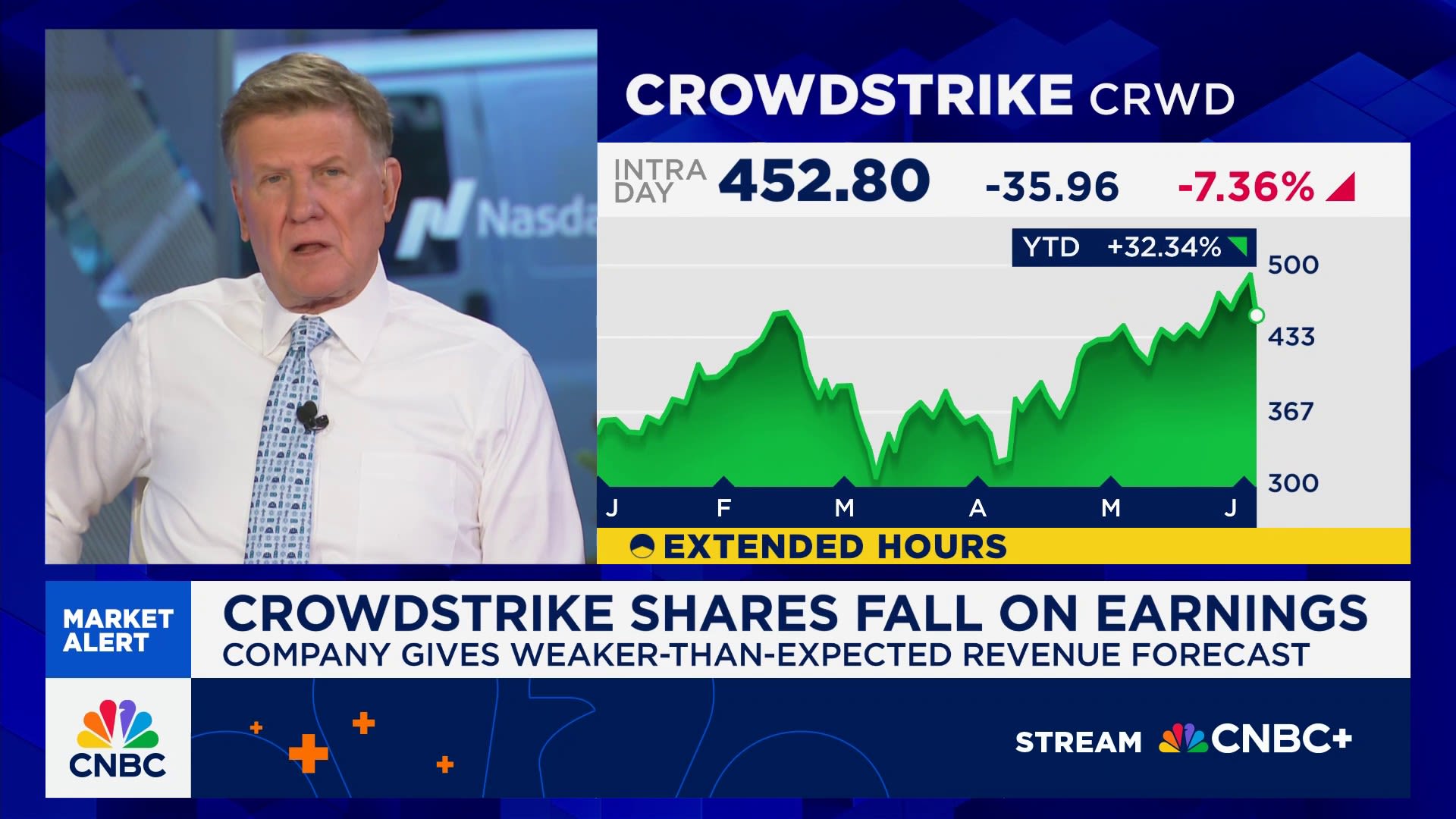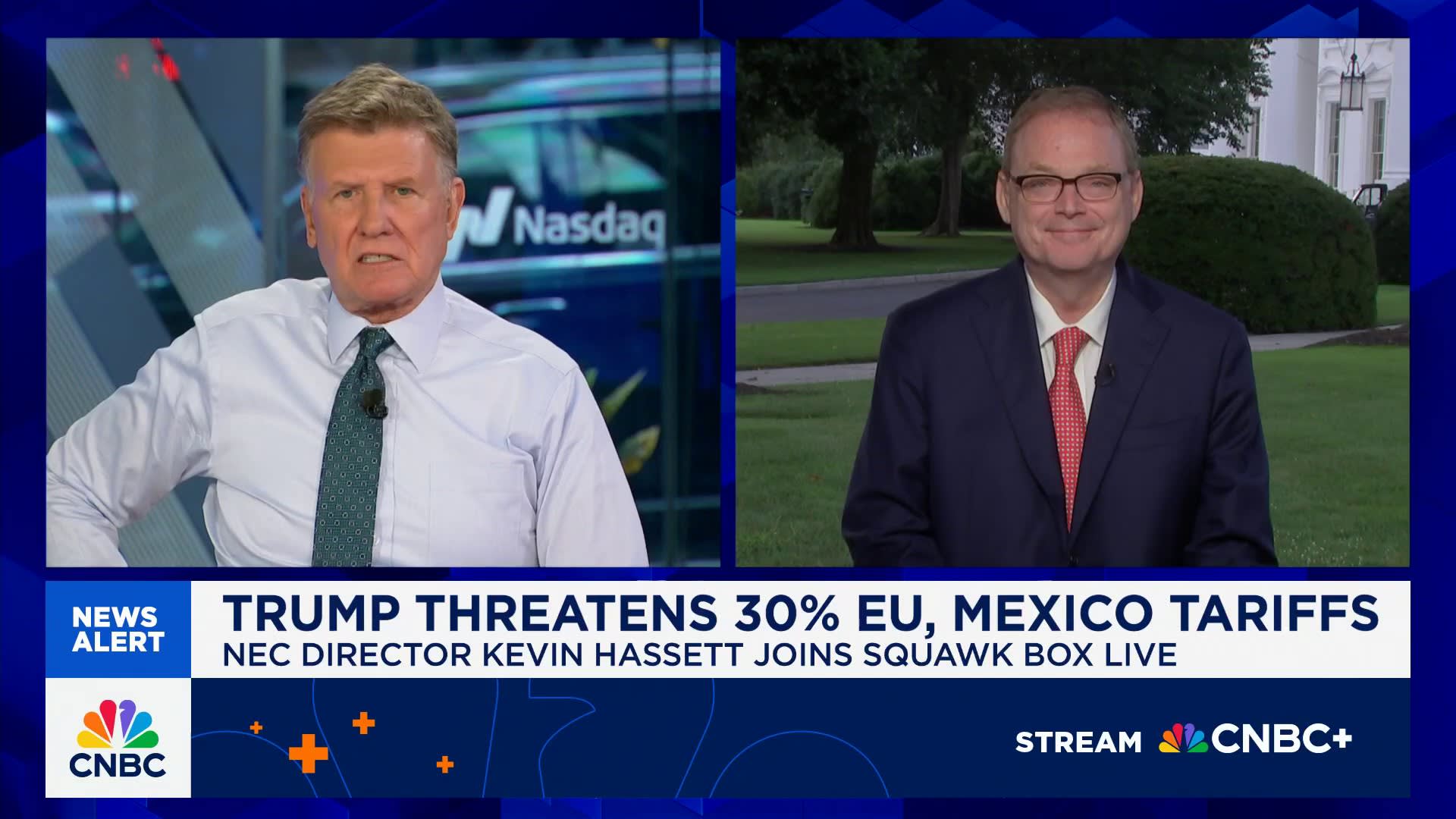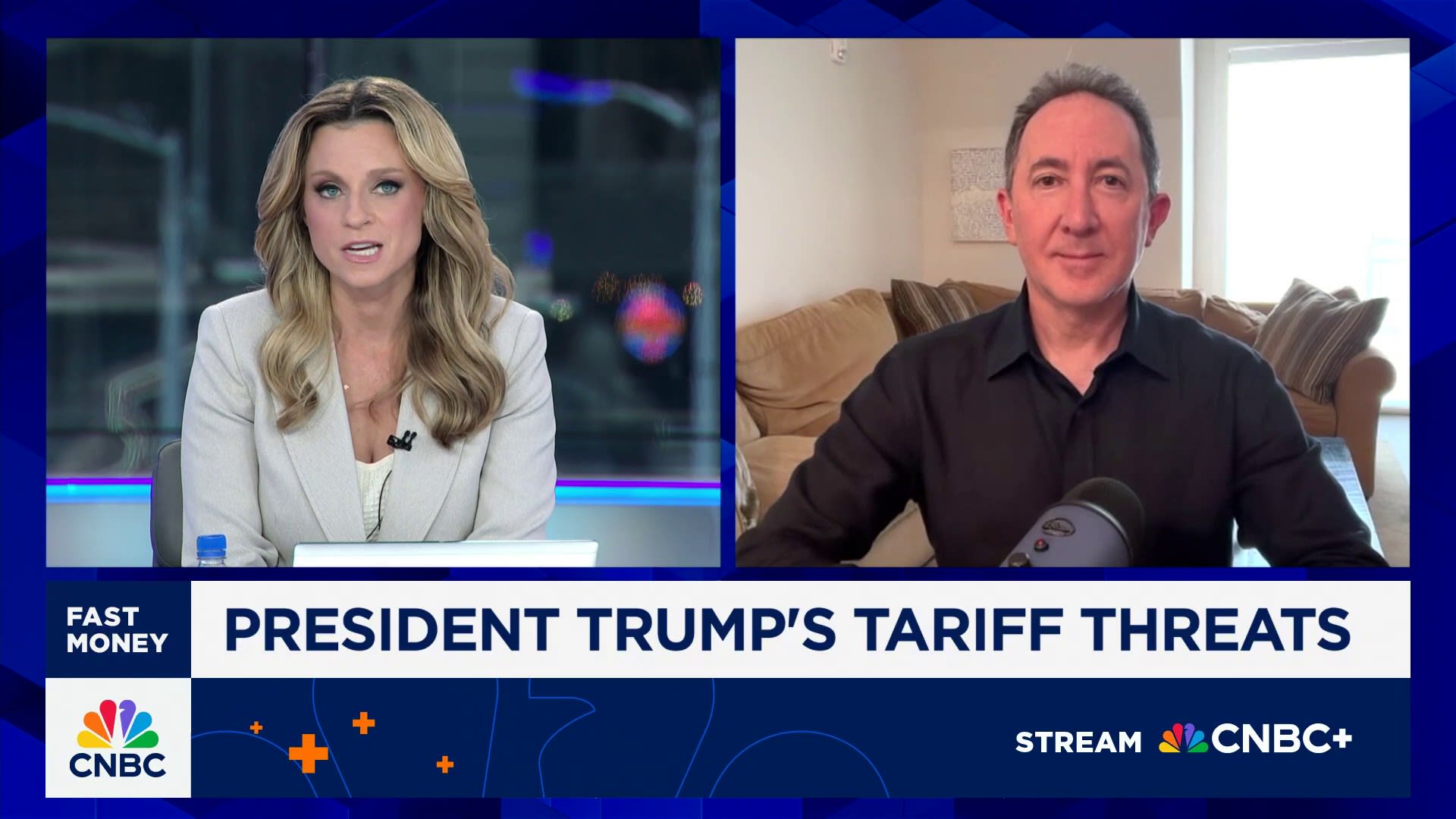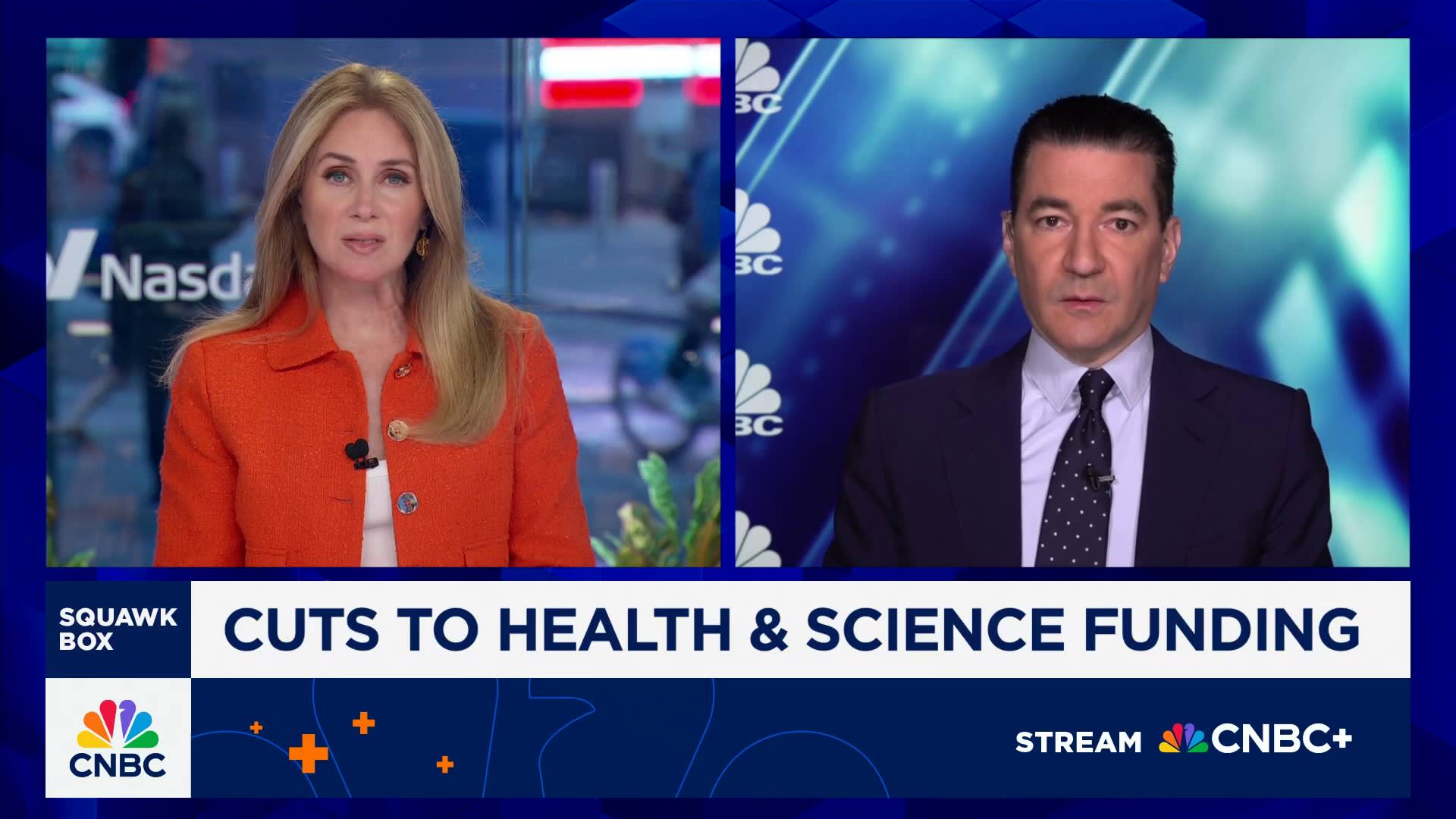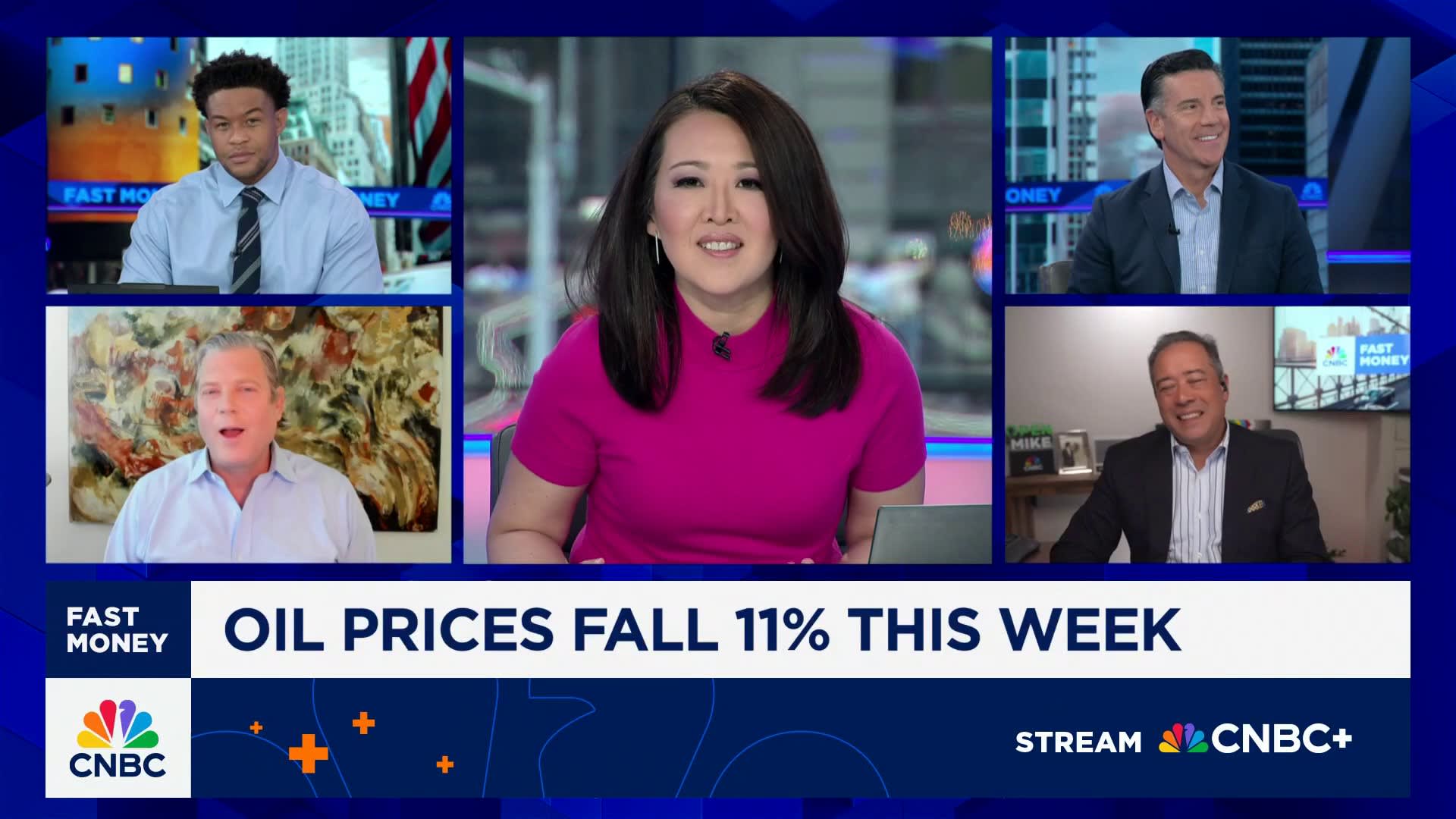Stocks are getting clobbered since President Donald Trump announced new tariffs last Wednesday. The problem for investors in search of bargains: It’s hard to know which names are actually on sale. The standard way to value stocks is a forward price-to-earnings multiple, based estimates for the coming 12 months. Take the share price and divide it by the consensus earnings per share estimate on Wall Street, and you have the P/E. In ordinary times, it’s quite common to look at stocks with falling P/Es and determine that a more attractive entry point has arrived. “This stock has gone on sale,” is a typical refrain. “It’s trading at a discount to its history,” is another one. But in moments of widespread uncertainty, like the one now upon us, the standard playbook is difficult to rely on. The heart of the matter is that investors can no longer trust the “P/E,” especially the earnings estimate ingredient. And the erosion in trust occurs in more ways than one. For starters, investors are generally willing to pay a higher P/E multiple for stocks when things are going well. The economy is expanding, earnings are growing, interest rates are stable or, at least, not going up — for the most part, that kind of world will lead to “multiple expansion.” On a company-specific level, accelerating revenue and earnings growth tends to be rewarded with a higher multiple, even if the macroeconomic picture is less than stellar. When the reverse is true — fears of a recession reign supreme, and therefore earnings growth might be slowing or even contracting — investors are going to be more cautious. Sentiment turns sour. And one way that manifests is that they will no longer be willing to pay the same multiple as before. Risk is elevated, and so they adjust accordingly, leading to “multiple compression.” This generally plays out at both the index and individual stock levels. Sure, the stock is now cheaper than it used to be, but with sentiment on the decline, other investors aren’t willing to pay that higher price anymore. It’s like seeing a good price on a car that just has been deemed unsafe for the roads — are you sure you want to buy it? The other place where trust in the P/E breaks down is on the earnings estimate itself. As a stock’s share price declines, it is really only getting cheaper on a P/E basis if the earnings estimates themselves do not fall in lockstep. If Company ABC’s stock went from $100 a share to $85, but throughout that decline, it is still expected to earn $5 a share in its fiscal year — and there’s been nothing happening in the world or with the company to suggest that it can no longer earn $5 a share — then the stock got cheaper. Its P/E went from 20 to 17, and now it is trading at a discount. What is happening with stocks inside the Club’s portfolio right now — and practically the entire market — is that investors are much less certain in whatever they expected their companies to earn before Trump’s steeper-than-expected “reciprocal” tariffs were announced. They have no idea if Company ABC — which makes most its products in, say, Thailand — will actually earn $5 this fiscal year anymore because it is now subject to a 36% tariff on those goods coming to the U.S. Compounding the issue is the global flow of goods coming to a screeching halt if the economy worsens. Earnings estimates would be too high not just due to tariffs threatening margins, but also because of slower economic growth overall. So now as stocks are falling, it’s more difficult to conclude, “Yes, shares of Company ABC are going on sale.” If their earnings per share this fiscal year end up falling more than 15% — the magnitude of a $100 to $85 decline in share price – then the stock did not really go on sale. An important thing to understand, at this stage of the tariff-driven sell-off, is that earnings estimates on Wall Street have generally not been recalibrated to account for the potential hit to earnings that companies will see because of the higher duties on imports and the threat of a slower economy. That’s why it’s hard to emphatically recommend buying the dip — even if, as of Sunday night, every stock in the Club’s portfolio outside of TJX Companies is trading at a lower price-to-earnings multiple than it was five trading days ago, according to FactSet data. They look cheaper on the face, but if the “E” needs to comes down more than the stock has, then it’s an effective wash. Part of this is simply because sell-side analysts working at investment banks — the kind of folks who make up the “Wall Street consensus” — lacked the information on Thursday and Friday to adjust their models with a high degree of confidence. Are these tariffs really going to go into effect Wednesday at the same rate that was announced on April 2? What if Trump over the weekend signals a willingness to negotiate and these tariffs didn’t really change the business and economic dynamics in a material way? With so much still unknown, it’s totally reasonable for analysts to take a wait-and-see approach to their earnings estimates. It just means that, for many stocks, the “E” in the P/E cannot yet be trusted. On Sunday night, the Club looked at all 29 portfolio names, to see how they fared on a metric provided by FactSet that measures earnings revisions. The metric looks at how many analysts over the past 30 days provided negatively revised earnings estimate for the company’s fiscal year compared with the number of analysts who provided an earnings estimate in general. The higher the percentage, that means that more analysts are cutting numbers to reflect a worsening in the business outlook. The only company that had more than 40% of analysts revise their estimates lower over the past month was Goldman Sachs , which makes sense because it’s been clear for a few weeks that the major rebound in M & A and capital markets activity many expected to see in 2025 was taking longer to materialize. In fact, 11 companies in the portfolio saw zero negative revisions over the past month — including the likes of Disney , Eaton , Dover Corp. and Honeywell . If the U.S. economy really were to dip into a recession as a result of a tariff-sparked trade war, it stands to reason that Disney and those three industrial companies — a classic group of economically sensitive companies — would see a hit to earnings. Indeed, shortly after the Club looked at this metric, FactSet sent an alert that analysts at RBC Capital Markets cut their earnings estimates for Eaton, Dover and Honeywell. Zooming out further, if a recession were to materialize, very few companies would be immune on the earnings front, and most of the analysts covering them would need to take their earnings estimates lower. As of Sunday night, that had not happened — yet. However, based on what’s currently known, it is reasonable to be concerned about the economy and what it could mean for corporate earnings. At some level, investors who want to start buying a hard-hit stock right now need to determine whether the share price has fallen by a steeper amount than they expect the company’s earnings to decline. It’s not an easy question to answer, given how uncertain and fast-moving this situation is. The job for investors is to make determinations on both sides of “E,” while realizing what they know and don’t know. What is overall environment around multiples? How much are other investors willing to pay for stocks? And secondly, is the earnings estimate data that now comprises a P/E even trustworthy? The risks are significant and shifting. At this point, the way we are managing these risks is by staying patient and trying to avoid buying too soon, as Jim laid out in his Sunday column for Club members . In particular, we are waiting until we know more about the retaliation from U.S. trading partners, particularly Europe, due to fears that such actions could cause the market to take another leg lower. Our long-term faith in the U.S. stock market as a vehicle for wealth creation is hardly shaken. But as of now, visibility is too low to start out on a new road trip. (Jim Cramer’s Charitable Trust is long TJX, DIS, HON, GS, DOV, ETN. See here for a full list of the stocks.) As a subscriber to the CNBC Investing Club with Jim Cramer, you will receive a trade alert before Jim makes a trade. Jim waits 45 minutes after sending a trade alert before buying or selling a stock in his charitable trust’s portfolio. If Jim has talked about a stock on CNBC TV, he waits 72 hours after issuing the trade alert before executing the trade. THE ABOVE INVESTING CLUB INFORMATION IS SUBJECT TO OUR TERMS AND CONDITIONS AND PRIVACY POLICY , TOGETHER WITH OUR DISCLAIMER . NO FIDUCIARY OBLIGATION OR DUTY EXISTS, OR IS CREATED, BY VIRTUE OF YOUR RECEIPT OF ANY INFORMATION PROVIDED IN CONNECTION WITH THE INVESTING CLUB. NO SPECIFIC OUTCOME OR PROFIT IS GUARANTEED.
People walk by the New York Stock Exchange (NYSE) before the Closing Bell and the start of President Donald Trump’s news conference on tariffs on April 2, 2025 in New York City.
Spencer Platt | Getty Images
Stocks are getting clobbered since President Donald Trump announced new tariffs last Wednesday. The problem for investors in search of bargains: It’s hard to know which names are actually on sale.





